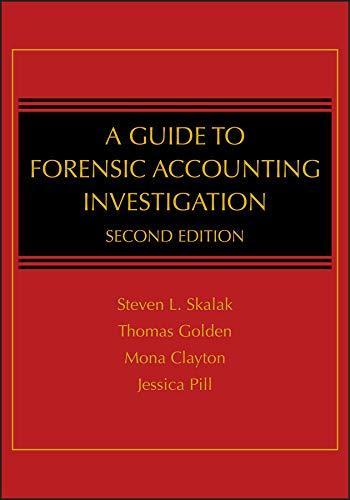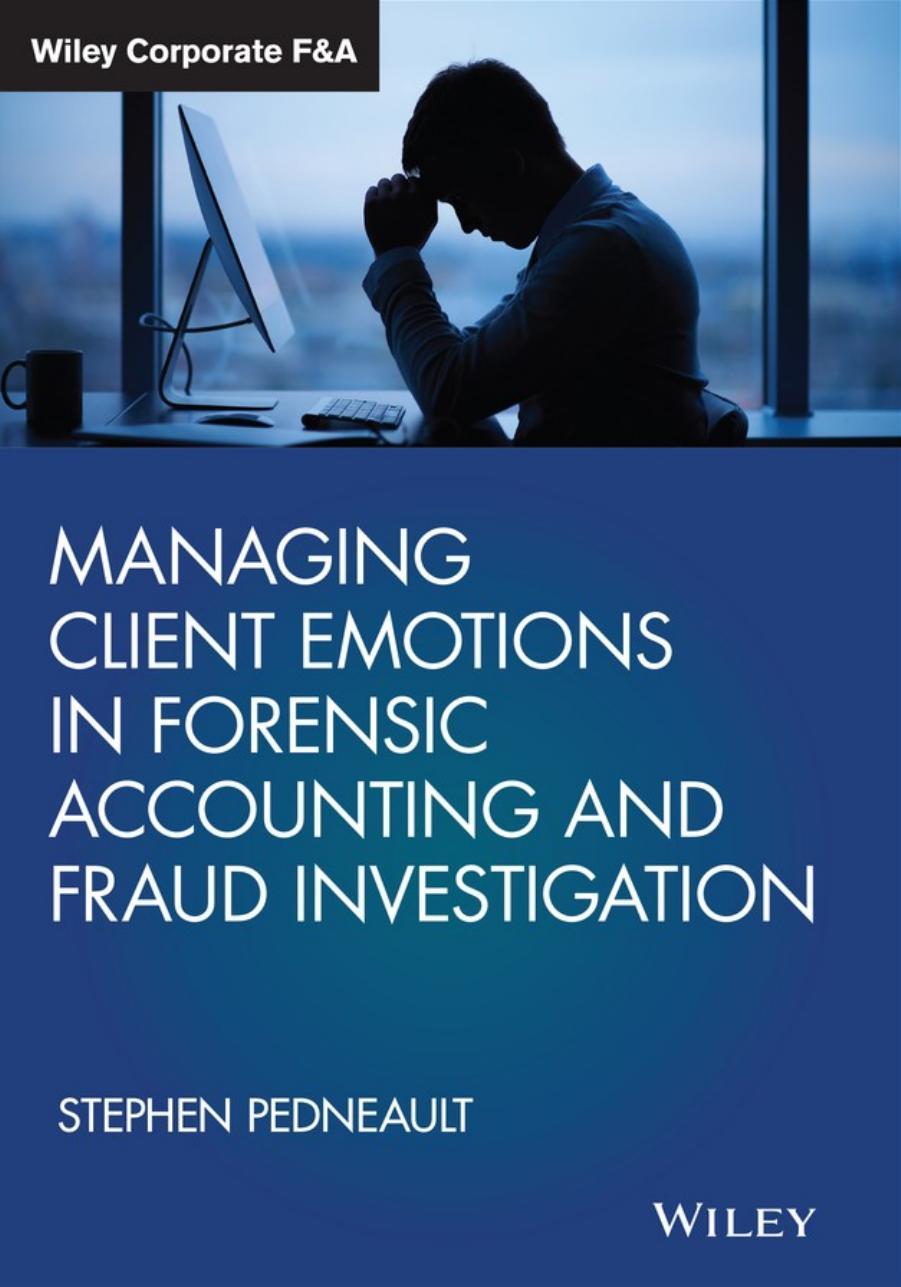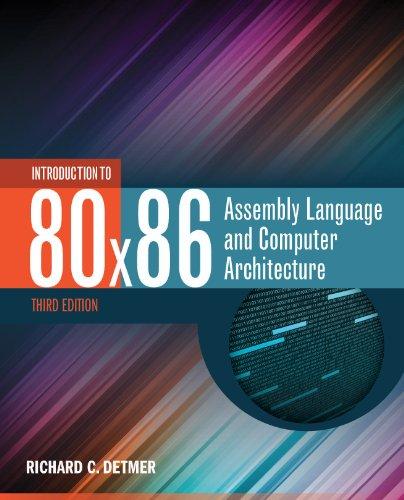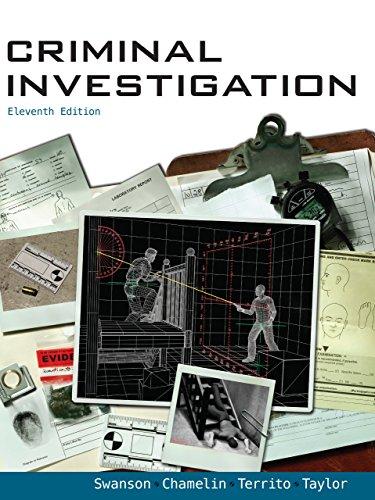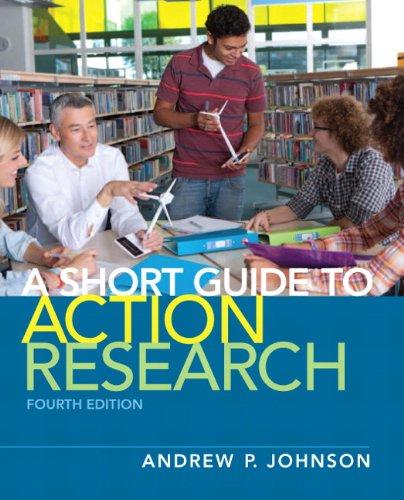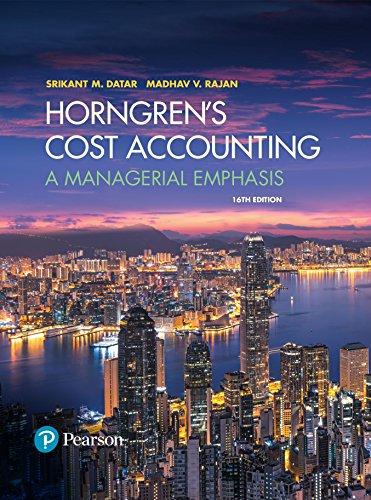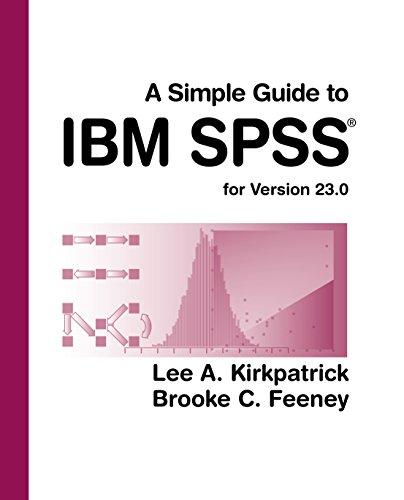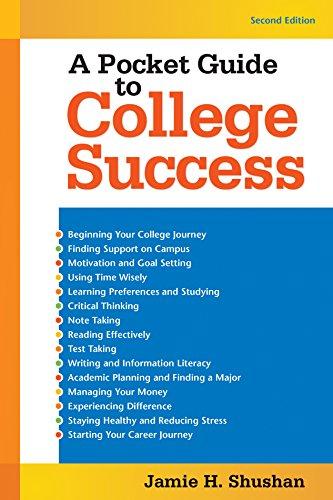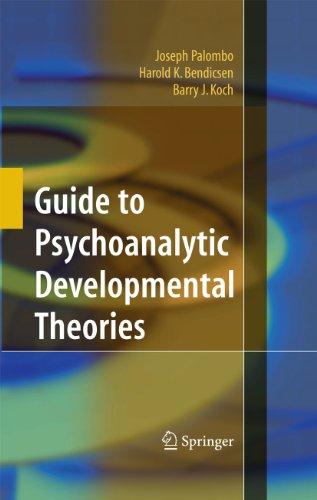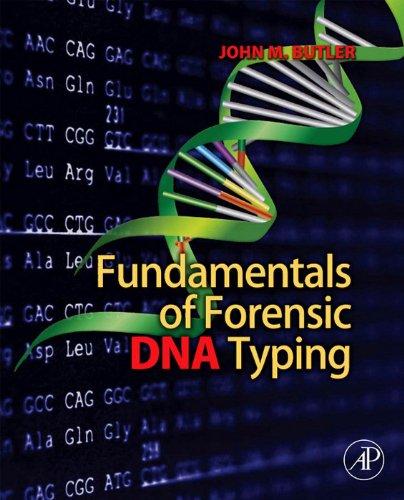AGuidetoForensic Accounting Investigation
Preface
Thecatastrophicbusinessfailuresofthisdecadehavebeenrevealingonmany levels.Frommyprofessionalperspectiveasaforensicaccountinginvestigator, Icouldn’thelpbutnoticetheneedacrossmuchofthebusinesscommunityfora bettergraspofthescopeandskillsoftheforensicaccountinginvestigator.Most peopleseemedtobestruggling.Howcouldthesemassivefraudshaveoccurred? Howcansucheventsbedeterred—ifnotwhollyprevented—inthefuture?Whois responsiblefordeterrence,detection,andinvestigation?Isitamatterofsystems, ofattitudes,ofaggressiveinternalpolicing,ofmorestringentregulatoryoversight, of“alloftheabove,”andmorestill?Whatmethodsareeffective?Whatshouldan auditor,acorporatedirector,anexecutivelookfor?Therewerefarmorequestions thananswers,andallthequestionsweredifficult.Forensicaccountinginvestigation hadbecomeimportanttothelargerbusinesscommunityandthepublic.Theywere relyingonittosolveproblems,deternewproblems,andcontributetonew,tougher standardsofcorporatebehaviorandreportedinformation.Butallconcerned,from CEOstofinancialstatementauditors,stillhavemuchtolearnabouttherelatively newdisciplineofforensicaccountinginvestigation.
Thekeynotesofthepasttenyearsaretoughnewlegislationandregulation tostrengthencorporategovernanceandnewoversightofthefinancialcommunity, corporations,andauditors.Also,theaccountingprofessioncontinuestoreviewthe needfornewanddifferentapproachestofraud.Alloftheseinitiativesareintended toincreaseinvestorconfidenceincorporateinformationandfinancialmarkets.
Pushingthesetrendsrelentlesslyforwardistheconvictionoftheconcerned publicthatcorporatefraudisunacceptable.Itmaywelloccur—thisisanimperfect world—buteverythingmustbedonetodeter,detect,investigate,andpenalizeit. Investorslooktocorporatedirectorsandexecutives,internalandexternalauditors, andregulatorstokeepcompanieshonest.Theywanttobeabletotrustsecurities analyststoreportandrecommendwithoutconcealedself-interest.Andtheyexpect lenders,businesspartners,andotherswhodealwithacorporationtoexerciseand requiresoundbusinessethics.
Wherefraudisconcerned,thereisnosilverbullet.Clearly,abookwouldhelpto addresstheneedsofthreebroadconstituencies:management,corporatedirectors, andauditors(internalandexternal).Justasclearly,itshouldn’tbeabookthat focusedonlyonconceptsandfacts.Itwouldneedtolookatpractice.Itwould havetoconveyeffectiveworkingattitudesandrealisticperspectivesonmanyissues, fromthevariedskillsrequiredofforensicaccountinginvestigatorstoworkingwith attorneysandreportingfindings.Itwouldhavetooffercasestudiesthatreveal thethinkingofbothexperiencedinvestigatorsandthefraudsterstheypursue.In short,itwouldhavetobringitsreadersintothecomplexandevolvingcultureof
forensicaccountinginvestigationwhileservingasacomprehensive,reliable,easily usedreferencesource.
Thisisabookthatsomereaderswillexplorepagebypage;otherswilluseitasa reference.Howeveritisapproached,itwillrevealthecomplexityoffrauddeterrence, detection,andinvestigationandofferastep-by-stepmethodtounderstandingthat complexity.Somereaderswillseekinthisbookabroadappreciationforinvestigative techniquessothattheycanmoreeffectivelymanagetheprocesswhenandifneeded. Otherswillwanttocommitthedetailstomemory.Forbothtypesofreader,itis allhere:commonfraudulentschemes,thepsychologyofthefraudster,theneedfor professionalskepticism,respondingtowhistle-blowers,workingwithlawyersand prosecutors,newtechnologiesthatfacilitatedetection,andmuchmore.
Inpracticalreality,noonecanguaranteethatallfraudswillbeeitherprevented ordetectedinatimelymanner.Yetthetoolboxofthosewhosafeguardtheintegrity ofcorporateinformationandinvestigatepossiblewrongdoingiswellfilled.This bookwillmakethatclear.Itputsbeforethereaderwhatis,tomymind,anextraordinaryarrayofbestpractices,tools,andtechniquesforthedeterrence,detection,and investigationofcorporatefraud.Theskillsandknowledgeoftheforensicaccounting investigatorareevidentoneverypage.
Thisisbynomeansacasualbook,tossedofftomeetanephemeralneed.We hopethattheeffortthathasgoneintoitwillmakeitsubstantivelyusefuloverthe longterm.Withproperknowledgeanddiligenceamongallthosewhoareresponsibleforprovidingfinancialinformationforthecapitalmarkets,financialfraudcan besignificantlydeterred.Asthesuspicionandrealityoffrauddiminishacrossthe corporateworld,investorswillregainconfidenceintheintegrityofcorporateinformation.Theultimatepurposeofthisbookreachespasttheauditprofession—and thedirectorsandmanagerswhohireandworkwithauditors—toaddresstheneeds ofthecapitalmarketsworldwide.
STEVEN L.SKALAK,Partner
MONA M.CLAYTON,Partner
THOMAS W.GOLDEN,Partner,Retired
JESSICA S.PILL,Director,ForensicServices PricewaterhouseCoopersLLP
Abookofthisscopeisacollectiveendeavor.Wewanttotakethisopportunity tothankDennisNally,JuanPujadas,GregBardnell,andGregGarrison.We wantalsotoidentifythoseindividualswhohavecontributedtoasustainedeffortof thinking,writing,fact-checking,editing,andprojectmanagement.
Therewasateamaroundusfromthebeginning.Weoweaparticulardebtof gratitudetoRobbiePound.Thisisabetterbookforhiscounselandsuggestions. MeredithKochanekandMollyMcCarthy,servingasco-projectmanagers,were indispensableandkeptusfocusedonthenextmountaintoclimb,ensuringthorough communicationasweprogressed.AtJohnWiley&Sons,webenefitedfromthe patienceandacumen—astheywellknow—ofRobertChiarelli,JohnDeRemigis, JenniferMacDonald,KellyO’Connor,andtheircolleagues.
WeoweparticulargratitudetoourChicago-andNewYork–basedpractice teams.Thedirectors,managers,staff,andassistantswithwhomweworkclosely,as wellasmanyothercolleagues,performedresearch,checkedexhibits,readchapters, chasedfacts,andprovidedinsights.Theirtirelesseffortandenthusiasmenergized useachdayintheconvictionthatthisbookwillbeusefultomanypeopleinthese challengingtimes.
Ourgreatestthanksgotoourfellowauthors—practitionersintheUnitedStates andaroundtheworld,andanumberofattorneyswithotherfirmsorgovernment, whodrewontheirtime,experience,andwisdomtowritemanyofthechapters.At theheadofeachchapter,readerswillfindtheseindividualsclearlyandgratefully identified.Thisistheirbookasmuchasitisours.
Thefollowingrosternames,withgratitude,theauthorswhocreatedtheoriginal draftsofallchaptersandapprovedtheirfinalform.Allarepartnersoremployeesof PricewaterhouseCoopersapartfromclearlyidentifiedexceptions.
1. Fraud:AnIntroduction
StevenL.Skalak
MannyA.Alas
GusSellitto
2. PsychologyoftheFraudster
ThomasW.Golden
3. TheRolesoftheAuditorandtheForensicAccountingInvestigator
JamesS.Gerson
JohnP.Brolly
StevenL.Skalak
4. AuditorResponsibilitiesandtheLaw
GeoffreyAronow,Partner,BinghamMcCutchenLLP,Washington,D.C. HartwellHarris,Associate,BinghamMcCutchenLLP,SantaMonica,CA
5. WhenandWhytoCallinForensicAccountingInvestigators
DarrenJ.Tapp
W.McKay(Mac)Henderson
6. InternalAudit:TheSecondLineofDefense
DennisD.Bartolucci
ThereseM.Bobek
JamesA.LaTorre
7. TeamingwithForensicAccountingInvestigators
ErikSkramstad
8. AnonymousCommunications
W.McKay(Mac)Henderson
PeterJ.Greaves
9. PersonalPrivacyandPublicDisclosure
HugoTeufelIII
SanjaySubramanian
SergioPedro
10. BuildingaCase:GatheringandDocumentingEvidence
FredericR.Miller
DavidL.Marston
11. Independence,Objectivity,Skepticism
StevenL.Skalak
ThomasW.Golden
12. PotentialMissteps:ConsiderationsWhenFraudIsSuspected ThomasW.Golden
KevinD.Kreb
13. PotentialRedFlagsandFraudDetectionTechniques
WillKenyon
PatriciaD.Tilton
14. InvestigativeTechniques
MonaM.Clayton
15. CorporateIntelligence
DavidJansen
GlennWare
AlexanderKapur
16. TheArtoftheInterview
ThomasW.Golden
MichaelT.Dyer
17. DataMining
DyanDecker
AlexandreBlanc
JohnLoveland
MonaClayton
18. ReportofInvestigation
ThomasW.Golden
RyanD.Murphy
19. SupportingaCriminalProsecution
AlbertA.Vondra
ThomasW.Golden
JohnGallo,Partner,SidleyAustinBrownandWoodLLP,Chicago
IsabelM.Cumming,ChiefofEconomicCrimes,PrinceGeorge’sCounty, Maryland
20. WorkingwithAttorneys
ThomasW.Golden
MichaelT.Dyer
SonyaAndreassen-Henderson
21. FinancialReportingFraudandCapitalMarkets
DanielV.Dooley
StevenL.Skalak
22. FinancialStatementFraud:RevenueandReceivables
JonnyJ.Frank DavidJansen MichaelCarey
23. FinancialStatementFraud:OtherSchemesandMisappropriations
JonnyJ.Frank DavidJansen MichaelCarey
24. PonziSchemes
StevenL.Skalak
ReginaLau
SherrieClarke
25. MoneyLaundering
AndrewP.Clark
Marie-AliceHofmaier
ChristopherCowin
26. ForeignCorruptPracticesAct
SulakshShah
DanaWeintraub
FredericR.Miller
27. ConstructionProjects
DarylWalcroft
AnthonyMorgan
28. ContractCompliance
JeffLeedom
PhilipTreccagnoli
DavidL.Marston
29. OtherDimensionsofForensicAccounting
MichaelS.Markman
AronLevko
MarkW.Haller
RobertW.Dennis
MonaM.Clayton
J.ChristopherDineen
DyanDecker
ShaneSims
30. CorporateRemediation
MatthewJ.Shelhorse
ChristopherD.Barbee
PeterA.Viksnins
FaizalB.Karim
Theauthorsofferthisbookwiththehopethatitanswersaveryrealneedand willprovideitsreaderswithanewandcompellingvisionoftheroleofforensic accountantsinthedeterrence,detection,andinvestigationofcorporatefraud.The viewsexpressedinthisbookarethoseoftheindividualauthorsandarenotnecessarilytheviewsofPricewaterhouseCoopersoranyotherPricewaterhouseCoopers partneroremployee.Unlessotherwiseindicated,theauthorsarenotattorneysand theircommentsarebasedontheirpersonalexperiencesanddonotrepresentlegal advice.
THOMAS W.GOLDEN
STEVEN L.SKALAK
MONA M.CLAYTON
JESSICA S.PILL
A Guide to Forensic Accounting Investigation, Second Edition
By Thomas W. Golden, Steven L. Skalak, Mona M. Clayton and Jessica S. Pill
Copyright © 2011 by PricewaterhouseCoopers
Fraud:AnIntroduction
StevenL.Skalak,MannyA.Alas,andGusSellitto
Fraudevokesavisceralreactioninus.Itisanabuseofourexpectationoffair treatmentbyfellowhumanbeings.Beyondthat,itisablowtoourself-imageas savvymanagerscapableofdeterringordetectingafraudulentscheme.Whetherwe reactbecauseofourvaluesorourvanity,nobodylikestobeduped.Manyelementsof modernsocietyarefocusedonmaintaininganenvironmentoffairdealing.Lawsare passed;agenciesareestablishedtoenforcethem;policearehired;ethicsandmorals aretaughtinschoolsandlearnedinbusinesses;andcriminalsarepunishedbythe forfeitureoftheirill-gottengainsandpersonalliberty—allwithaviewtodeterring, detecting,andpunishingfraud.Theprofessionofaccountingandauditinggrewout ofsociety’sneedtoensurefairandcorrectdealingsincommerceandgovernment.
Oneofthecentraloutcomesoffraudisfinancialloss.Therefore,intheminds oftheinvestingpublic,theaccountingandauditingprofessionisinextricablylinked withfrauddeterrence,frauddetection,andfraudinvestigation.Thisistruetosuch anextentthattherearethosewhoseperceptionofwhatcanberealisticallyaccomplishedinanauditfrequentlyexceedstheservicesthatanyaccountantorauditor candeliverand,intermsofcost,exceedswhatanybusinessmightbewillingtopay (seeChapter3).Inthepastdecade,publicangeroveroccurrencesofmassivefraud inpubliccorporationsandtheconductoffinancialinstitutionshasspawnedsubstantialgovernmentspending,regulatoryreform,globalconvergenceofaccounting standards,newauditingstandards,newoversightoftheaccountingprofession,and greaterpenaltiesforthosewhoconspiretocommitorconcealfinancialfraudoract corruptly.
Thisbookaddressesthedistinctrolesofcorporatedirectors,management,externalauditors,internalauditors,andforensicaccountinginvestigatorswithrespectto frauddeterrence,frauddetection,andfraudinvestigation.1 Aswillquicklybecome
1 Forensicaccountants aremembersofabroadgroupofprofessionalsthatincludesbutisnot limitedtothosewhoperformfinancialinvestigations.Thepublicoftenusestheterm forensic accountants torefertofinancialinvestigators,althoughmanyforensicaccountantsdonotperformfinancialinvestigations.InChapter29,wediscussthemanyotherservicesencompassed underthebroaderterm forensicaccounting. Aforensicaccountinginvestigatoristrainedand experiencedininvestigatingandresolvingsuspicionsorallegationsoffraudthroughdocument analysistoincludebothfinancialandnonfinancialinformation,interviewing,andthird-party
apparentlaterinthisintroductorychapter,theseprofessionalsarebynomeansthe onlyonesconcernedwithcombatingfraud.However,eachhasasignificantrolein thelargerefforttominimizefraud.
FRAUD:WHATISIT?
Generally,allactsoffraudcanbedistilledintofourbasicelements:
1. Afalserepresentationofamaterialnature2
2. Scienter—knowledgethattherepresentationisfalse,orrecklessdisregardfor thetruth
3. Reliance—thepersonreceivingtherepresentationreasonablyandjustifiablyreliedonit
4. Damages—financialdamagesresultingfromalloftheforegoing
Bywayofillustration,considertheclassicexampleofthepurchaseofaused car.Thesalespersonislikelytomakerepresentationsaboutthequalityofthecar, itspasthistory,andthequalityofpartssubjecttowearandtear,rangingfromthe transmissiontothepaintjob.Theelementsoffraudmayormaynotariseoutofsuch statements.First,thereisadistinctionbetweenhypeandfalsehood.Thesalesperson hypeswhenheclaimsthatthe1977ChevyVega“runslikenew.”However,werehe toturnbacktheodometer,hewouldbemakingafalserepresentation.Second,the falsestatementmustbematerial.Iftheodometerreadingisaccurate,thesalesperson’s representationthatthecarrunslikeneworwasonlydriveninfrequently,is,strictly speaking,merehype:Thepurchaserneedonlylookattheodometertoforma prudentviewoftheextentofuseandthecar’slikelyroadworthiness.Third,the fraudstermustmakethematerialfalsemisrepresentationwith scienter, thatis,with actualknowledgethatthestatementisfalseorwitharecklessdisregardforthe truth.Forexample,thecarmayormaynothavenewtires.Butifthesalesperson, aftermakingreasonableinquiries,trulybelievesthattheVegahasnewtires,there isnoknowingmisrepresentation.Theremaybenegligence,butthereisnofraud. Fourth,thepotentialvictimmustjustifiablyrelyonthefalserepresentation.Abuyer whowantsabluecarmayactuallybelievethesalesperson’srepresentationthat“it’s reallybluebutlooksredinthislight.”Relianceinthatcaseis,atbest,naiveand certainlynotjustified.Finally,theremustbesomeformofdamage.Thecarmust infactprovetobealemonwhenthepurchaserdrivesoffinitandrealizesthathe hasbeenmisled.Regardlessofcontext,fromEnron,Siemens,orCountrywideto inquiries,includingcommercialdatabases.SeetheAuditingandInvestigationsectionatthe endofthischapter. Auditors isusedthroughoutthistexttorepresentbothinternaland externalauditorsunlessotherwisespecifiedaspertainingtoonegrouportheother.
2 Theterm material asusedinthiscontextisalegalstandardwhosedefinitionvariesfrom jurisdictiontojurisdiction.Itshouldnotbeconfusedwiththeconceptofmaterialityasused inauditing,inwhichoneconsiderstheeffectoffraudanderrorsrelatedtofinancialstatement reporting.
HonestAbe’sUsedCarLot,fraudisfraud,anditdisplaysthefoursimpleelements notedearlier.
FRAUD:PREVALENCE,IMPACT,ANDFORM
Fraudisafeatureofeveryorganizedcultureintheworld.Itaffectsmanyorganizations,regardlessofsize,location,orindustry.AccordingtotheAssociationof CertifiedFraudExaminers’survey,approximately$994billionwaslostbyU.S.companiesin2008duetooccupationalfraudandabuse,andoveroneinfourcasescost theorganizationinexcessof$1million.3 Twenty-ninepercentofallfraudiscommittedbyaccountingdepartmentemployees,and18percentoffraudswerecommitted bymembersofuppermanagement.4
AccordingtoPwC’s2009SecuritiesLitigation Study,seniorofficersofcompaniescontinuetobenamedinthemajorityoffilings during2009.ThepercentageofU.S.federalsecuritiesclassactionlawsuitsnaming theCEO,CFO,chairman,andpresidentwere81percent,62percent,47percent, and62percent,respectively.5
IfoneweretolookattheFBI’sstatisticsforwhite-collarcrime,however,one wouldnotreachthisconclusionbecausethosestatisticsarebaseduponprosecutions and,asdiscussedinChapter19,“SupportingaCriminalProsecution,”theoverwhelmingmajorityoffraudsarenotprosecuted.Baseduponourownexperience aswellasonsurveysconductedbyPricewaterhouseCooper(hereafterreferredto throughoutasPwC)(PwCEconomicCrimeSurvey)andtheAssociationofCertified FraudExaminers(ACFE),webelievethatfraudispervasive.
Accordingtothe2009PwCGlobalEconomicCrimeSurveystatistics,30percent oforganizationsfellvictimtofraudovertheprevious12months.Thisiscompared to43percentin2007and45percentin2005,whichbothlookbacktwoyears.6 RespondentsfromEasternandWesternEuropewereamongthecompaniesreporting thehighestincidentsoffraud;forexample,71percentoforganizationsinRussia and43percentintheUnitedKingdomreportedhavingexperiencedfraudintheir organization.7 Acrossallcompaniessurveyed,27percentsaidthatthedirectfinancial impactoffraudexposurewasmorethan$500,000,and25percentofthosereporting
3 U.S.organizationsloseanestimated7percentoftheirannualrevenuestofraud,according toasurveyofCertifiedFraudExaminerswhoinvestigatedcasesbetweenJanuary2006and February2008.Whenappliedtotheprojected2008U.S.GrossNationalProduct,the7 percentfiguretranslatestoapproximately$994billioninfraudlosses.Thefullstudycan befoundat:www.acfe.com/RTTN/2008-rttn.asp.AssociationofCertifiedFraudExaminers, 2008ReporttotheNationonOccupationalFraudandAbuse (Austin,TX:Associationof CertifiedFraudExaminers,2004),ii.
4 Id.
5 PricewaterhouseCoopers SecuritiesLitigationStudy2009
6 PricewaterhouseCoopers, GlobalEconomicCrimeSurvey2007, 4,www.pwc.com/en GX/ gx/economic-crime-survey/pdf/pwc 2007gecs.pdf.
7 PricewaterhouseCoopers, GlobalEconomicCrimeSurvey2009, 10,www.pwc.com/en GX/ gx/economic-crime-survey/pdf/global-economic-crime-survey-2009.pdf.
accountingfraudbelievedthatithadcostthemmorethan$1million.8 Overall,the realityoffraudisgreaterthantheperception.Statisticsfromour2007surveyshow that13percentand6percentofrespondentsthoughtitwaslikelythattheywould experienceassetmisappropriationandaccountingfraud,respectively,overthenext twoyears.Interestingly,thosenumbersmaybelow,giventhatinour2009survey, 20percentofcompaniesreportedbeingvictimsofassetmisappropriationand11 percentreportedhavingexperiencedaccountingfraud.9
FRAUDINHISTORICALPERSPECTIVE
Fraudinoneformoranotherhasbeenafactofbusinesslifeforthousandsofyears. InHammurabi’sBabylonianCodeofLaws,datingtoapproximately1800 B.C.E., theproblemoffraudissquarelyfaced:“Ifaherdsman,towhosecarecattleor sheephavebeenentrusted,beguiltyoffraudandmakefalsereturnsofthenatural increase,orsellthemformoney,thenshallhebeconvictedandpaytheownerten timestheloss.”10 Theearliestlawmakerswerealsotheearliesttorecognizeand combatfraud.
IntheUnitedStates,fraudshavebeencommittedsincethecoloniesweresettled. Aparticularlywell-knownfraudofthaterawasperpetratedin1616inJamestown, Virginia,byCaptainSamuelArgall,thedeputygovernor.CaptainArgallallegedly “fleecedinvestorsintheVirginiaCo.ofeverychickenanddrygoodthatwasn’t naileddown.”11 Accordingtothebook StealingfromAmerica, withintwoyearsof Argall’sassumptionofleadershipinJamestown,the“wholeestateofthepublicwas goneandconsumed....”12 WhenhereturnedtoEnglandwithaboatstuffedwith lootedgoods,residentsandinvestorswereleftwithonlysixgoats.13
Later,duringtheAmericanCivilWar,certainfraudsbecamesocommonthat legislaturesrecognizedtheneedfornewlaws.Oneofthemostegregiousfraudswas tobilltheUnitedStatesgovernmentfordefectiveornonexistentsuppliessoldtothe UnionArmy.Thefederalgovernment’sresponsewastheFalseClaimsAct,passedin March1863,whichassessedcorruptwarprofiteersdoubledamagesanda$2,000 civilfineforeachfalseclaimsubmitted.Remarkablyenough,thislawisstillinforce, thoughmuchamended.
SoonaftertheCivilWar,anothermajorfraudgainednotoriety:theCr ´ edit Mobilierschemeof1872.Consideredthemostseriouspoliticalscandalofitstime, thisfraudwasperpetratedbyexecutivesoftheUnionPacificRailroadCompany, operatinginconjunctionwithcorruptpoliticians.Cr ´ editMobilierofAmericawas setupbyrailroadmanagementandbyRepresentativeOakesAmesofMassachusetts,
8 Id.,13.
9 Id.,18.
10 Hammurabi’sCodeofLaws (1780 B.C.E.),L.W.King,trans.
11 CarolEmert,“ARichHistoryofCorporateCrime;FraudDatesBacktoAmerica’sColonial Days,”the SanFranciscoChronicle, July14,2002.
12 Id.
13 Id.
ostensiblytooverseeconstructionoftheUnionPacificRailroad.14 Cr ´ editMobilier chargedUnionPacific(whichwasheavilysubsidizedbythegovernment)nearlytwice theactualcostofcompletedworkanddistributedtheextra$50milliontocompany shareholders.15 SharesinCr ´ editMobilierweresoldathalfprice,andattimesoffered gratis,tocongressmenandprominentpoliticiansforthepurposeofbuyingtheir support.Amongthecompany’sfamousshareholderswereVicePresidentSchuyler Colfax,SpeakeroftheHouseJamesGillespieBlaine,futurevicepresidentsHenry WilsonandLeviParsonsMorton,andfuturepresidentJamesGarfield.16
TYPESOFFRAUD
Therearemanydifferenttypesoffraud,andmanywaystocharacterizeandcatalog fraud;thoseofthegreatestrelevancetoaccountantsandauditors,however,arethe followingbroadcategories:
EmployeeFraud17 /MisappropriationofAssets. Thistypeoffraudinvolvesthe theftofcashorinventory,skimmingrevenues,payrollfraud,andembezzlement. Assetmisappropriationisthemostcommontypeoffraud.18 Primaryexamples ofassetmisappropriationarefraudulentdisbursementssuchasbillingschemes, payrollschemes,expensereimbursementschemes,checktampering,andcash registerdisbursementschemes.Sometimesemployeescolludewithothersto perpetratefrauds,suchasaidingvendorsintentonoverbillingthecompany. Aninterestingdistinction:Someemployeemisdeedsdonotmeetthedefinition offraudbecausetheyarenotschemesbasedoncommunicatingadeceittothe employer.Forexample,theftofinventoryisnotnecessarilyafraud—itmay simplybeatheft.Falseexpensereporting,ontheotherhand,isafraudbecause itinvolvesafalserepresentationoftheexpensesincurred.Thisfraudcategory alsoincludesemployees’aidingandabettingothersoutsidethecompanyto defraudthirdparties.
FinancialStatementFraud. Thistypeoffraudischaracterizedbyintentional misstatementsoromissionsofamountsordisclosuresinfinancialreportingto deceivefinancialstatementusers.Morespecifically,financialstatementfraud involvesmanipulation,falsification,oralterationofaccountingrecordsorsupportingdocumentsfromwhichfinancialstatementsareprepared.Italsorefers totheintentionalmisapplicationofaccountingprinciplestomanipulateresults.
14 Id.
15 PeterCarlson,“HighandMightyCrooked:EnronIsMerelytheLatestChapterinthe HistoryofAmericanScams,” TheWashingtonPost, February10,2002.
16 D.C.Shouter,“TheCr ´ editMobilierofAmerica:AScandalthatShookWashington,” ChroniclesofAmericanWealth, No.4,November30,2001,www.raken.com/ american wealth/other/newsletter/chronicle301101.asp.
17 Employee herereferstoallofficersandemployeeswhoworkfortheorganization.
18 AssociationofCertifiedFraudExaminers, 2008ReporttotheNationonOccupational FraudandAbuse (Austin,TX:AssociationofCertifiedFraudExaminers,2008),11.
AccordingtoastudyconductedbytheAssociationofCertifiedFraudExaminers,fraudulentfinancialstatements,ascomparedwiththeotherformsoffraud perpetratedbycorporateemployees,usuallyhaveahigherdollarimpactonthe victimizedentityaswellasamorenegativeimpactonshareholdersandthe investingpublic.19
Asabroadclassification,corruptionstraddlesbothmisappropriationofassets andfinancialstatementfraud.TransparencyInternational,awidelyrespectednotfor-profitthinktank,definescorruptionas“theabuseofentrustedpowerforprivate gain.”20 Wewouldexpandthatdefinitiontoincludecorporategainaswellasprivate gain.Corruptiontakesmanyformsandrangesfromexecutivecompensationissues topaymentsmadetodomesticorforeigngovernmentofficialsandtheirfamily members.CorruptactivitiesareprohibitedintheUnitedStatesbyfederalandstate laws.BeyondU.S.borders,contributionstoforeignofficialsareprohibitedbythe ForeignCorruptPracticesAct.
Thisbookisprimarilyconcernedwithfraudcommittedbyemployeesandofficers,someofwhichmayleadtothematerialdistortionoffinancialstatementinformation,andthenatureofactivitiesdesignedtodeterandinvestigatesuchfrauds. Circumstancesinwhichfinancialinformationisexchanged(generallyintheform offinancialstatements)astheprimaryrepresentationofabusinesstransactionare fairlywidespread.Theyinclude,forexample,regularcommercialrelationshipsbetweenabusinessanditscustomersorvendors,borrowingmoneyfrombanksor otherfinancialinstitutions,buyingorsellingcompaniesorbusinesses,raisingmoney inthepublicorprivatecapitalmarkets,andsupportingthesecondarymarketfor tradinginpubliccompanydebtorequitysecurities.Thisbookfocusesprimarilyon threetypesoffraud:
1. Fraudsperpetratedbypeoplewithintheorganizationthatresultinharmtothe organizationitself
2. Fraudscommittedbythoseresponsibleforfinancialreporting,whousefinancial informationtheyknowtobefalsesotheycanperpetrateafraudoninvestorsor otherthirdparties,wherebytheorganizationbenefits
3. Corruptactsbycompaniesortheirexecutives,wherebytheexecutivepersonally orthecompanybenefits
ROOTCAUSESOFFRAUD
Associetyhasevolvedfrombarter-basedeconomiestoe-commerce,sohasfraud evolvedintocomplexforms—Hammurabi’sconcernabouttrustworthyshepherds wasjustthebeginning.Intheearly2000s,companiesheadquarteredinthedeveloped worldtooktheviewthattheirbusinessriskwashighestinemerging,orThirdWorld
19 Id.
20 TransparencyInternational,“TI’sVision,Mission,Values,ApproachandStrategy,” www.transparency.org.
regions,whereforeignbusinessculturesandless-developedregulatoryenvironments werebelievedtogenerategreaterrisk.21 Gainingmarketaccessandoperatingin emergingorless-developedmarketsseemedoftenenoughtoinvitebusinesspractices thatwerewhollyunacceptableathome.Sharingthisview,thegovernmentsofmajor industrialcountriesenactedlegislationtocombatthepotentialforcorruption.The UnitedStatesenactedtheForeignCorruptPracticesAct(FCPA);countriesworking togetherintheOrganisationforEconomicCo-operationandDevelopment(OECD) enactedtheConventiononCombatingBriberyofForeignPublicOfficialsinInternationalBusinessTransactions(knownasthe OECDConvention);theUnitedNations adoptedtheUnitedNationsConventionagainstCorruption(UNCAC);CanadaenactedtheCorruptionofForeignPublicOfficialsAct;andtheUnitedKingdompassed itsBriberyActin2010.
Thiswayofthinkingaboutriskandmarketsandofcombatingcorruption andfraudisnolongeradequate,however.Thenewparadigmforunderstanding riskpostulatesthatfraudriskfactorsareborderlessandnumerous.Fraudisnow understoodtobedrivenbyconcernsovercorporateperformance,financingpressures includingaccesstofinancing,thecompetitiontoenteranddominatemarkets,legal requirementsandexposure,andpersonalneedsandagendas.22 Theneedforthis newparadigmhasbecomeincreasinglyclearinthepastfewyears,whenthegreatest risktoinvestorshasappearedtobeparticipationintheseeminglywell-regulatedand well-establishedU.S.andEuropeanmarkets.Morerecently,eventsatseveralmajor Europeanmultinationalshaveshownthattheriskofmassivefraudandcorruption knowsnoborders.
TherecentspateofPonzischemes,corruption,andfinancialscandalshasdemonstratedthatlarge-scalecorporateimproprietiescananddooccurinsophisticated markets;theyarebynomeanstheexclusiveprovinceofforeignorremotemarkets.Capitalmarketaccessandtherelateddesireoflistedcompaniestoboostrevenuegrowth,andinvestors’desiretoachievesignificantandstablereturns,through whatevermeansnecessary,aremajorfactorscontributingtofinancialmalfeasance worldwide.
AHISTORICALACCOUNTOFTHEAUDITOR’SROLE
Wehavebrieflyexaminedtheelements,forms,andevolutionoffraud.Wecannow examinetheroleofoneofthekeyplayersintheefforttodetectfraud,theauditor.
Auditing:AncientHistory
Historiansbelievethatrecordkeepingoriginatedabout4000 B.C.E.,whenancientcivilizationsintheNearEastbegantoestablishorganizedgovernmentsand
21 PricewaterhouseCoopers,“FinancialFraud—UnderstandingRootCauses,” Investigations andForensicServicesReport (2002),1.
22 PricewaterhouseCoopers, GlobalEconomicCrimeSurvey2007 ,www.pwc.com/ en GX/gx/economic-crime-survey/pdf/pwc 2007gecs.pdf.
businesses.23 Governmentswereconcernedaboutaccountingforreceiptsanddisbursementsandcollectingtaxes.Anintegralpartofthisconcernwasestablishing controls,includingaudits,toreduceerrorandfraudonthepartofincompetentor dishonestofficials.24 Therearenumerousexamplesintheancientworldofauditing andcontrolproceduresemployedintheadministrationofpublicfinancesystems. TheShakodynastyofChina(1122–256 B.C.E.),theassemblyinclassicalAthens,and theSenateoftheRomanRepublicallexemplifyearlyrelianceonformalfinancial controls.25
Muchlater,inthetwelfthandthirteenthcenturies,recordsshowthatauditing workwasperformedinEngland,Scotland,Italy,andFrance.TheauditsinGreat Britainperformedbeforetheseventeenthcenturyweredirectedprimarilyatensuring theaccountabilityoffundsentrustedtopublicorprivateofficials.26 Thoseaudits werenotdesignedtotestthequalityoftheaccounts,exceptinsofarasinaccuracies mightpointtotheexistenceoffraud.
Economicchangesbetween1600and1800,whichsawthebeginningof widespreadcommerce,introducednewaccountingconcernsfocusedontheownershipofpropertyandthecalculationofprofitandlossinabusinesssense.Atthe endoftheseventeenthcentury,thefirstlawprohibitingcertainofficialsfromserving asauditorsofatownwasenactedinScotland,thusintroducingthemodernnotion ofauditorindependence.27
GrowthoftheAuditingProfessioninthe NineteenthCentury
Itwasnotuntilthenineteenthcentury,withthegrowthofrailroads,insurance companies,banks,andotherjointstockcompanies,thattheauditingprofession becameanimportantpartofthebusinessenvironment.InGreatBritain,thepassage oftheJointStockCompaniesActin1844andlatertheCompaniesActin1879 contributedgreatlytotheauditingfieldingeneralandtothedevelopmentofexternal auditingintheUnitedStates.28 TheJointStockCompaniesActrequiredcompanies tomaketheirbooksavailableforthecriticalanalysisofshareholdersattheannual meeting.TheCompaniesActin1879requiredalllimitedliabilitybankstosubmit toauditing,arequirementlaterexpandedtoincludeallsuchcompanies.29 Untilthe beginningofthetwentiethcentury,independentauditsintheUnitedStateswere modeledonBritishpracticeandwereinfactconductedprimarilybyauditorsfrom
23 RobertHiesterMontgomery, Montgomery’sAuditing, 12thed.(NewYork:JohnWiley& Sons,1998),1–7.
24 Id.
25 Id.
26 Id.
27 Id.
28 Id.
29 Dr.SheriMarkose,“HonestDisclosure,CorporateFraud,AuditorsandStockMarketValuation,”lecturefromcourseEC247:“FinancialInstrumentsandCapitalMarketInstitutions,” UniversityofEssex(Essex,U.K.,2003).
Britain,whoweredispatchedoverseasbyBritishinvestorsinU.S.companies.Britishstyleaudits,dubbed“bookkeeperaudits,”consistedofdetailedscrutinyofclerical datarelatingtothebalancesheet.Theseauditswereimperfectatbest.J.R.Edwards, in LegalRegulationofBritishCompanyAccounts,1836–1900, citestheviewofSir GeorgeJessel,alawyerandjudgefamousinhisday,onthequalityofexternal auditingsoonafterpassageoftheCompaniesAct:
Thenotionthatanyformofaccountwillpreventfraudisquitedelusive. Anybodywhohashadanyexperienceofthesethingsknowsthatarogue willputfalsefiguresintoanaccount,orcookasthephraseis,whatever formofaccountyouprescribe.Ifanybodyimaginesthatwillprotectthe shareholders,itissimplyadelusioninmyopinion. ...I havehadtheauditors examinedbeforeme,andIhavesaid,“Youauditedtheseaccounts?”“Yes.” “Didyoucallforanyvouchers?”“No,wedidnot;weweretolditwasall right,wesupposeditwas,andwesignedit.”30
Yetbytheendofthenineteenthcentury,themostsophisticatedmindsinthe auditingfieldwerecertainthatauditorscoulddomuchbetterthanthis.Witnessthe incisiveviewofLawrenceR.Dicksee,authorofamanualwidelystudiedinitsday (andstillavailabletoday,manyeditionslater):
ThedetectionoffraudisthemostimportantportionoftheAuditor’sduties, andtherewillbenodisputingthecontentionthattheAuditorwhoisable todetectfraudis—otherthingsbeingequal—abettermanthantheauditor whocannot.Auditor[s]should,therefore,assiduouslycultivatethisbranch oftheirfunctions. 31
InresponsetotherapidlyexpandingAmericanbusinessscene,auditsinthe UnitedStatesevolvedfromthemorecumbersomeBritishpracticeinto“testaudits.” Accordingto Montgomery’sAuditing, theemergenceofindependentauditingwas largelyduetothedemandsofcreditors,particularlybanks,forreliablefinancial informationonwhichtobasecreditdecisions.32 Thatdemandevolvedintoaseries ofstateandfederalsecuritiesacts,whichsignificantlyincreasedacompany’sburden topubliclydisclosefinancialinformationand,accordingly,catapultedtheauditor intoamoredemandingandvisiblerole.
FederalandStateSecuritiesRegulationbefore1934
BeforethecreationoftheSecuritiesandExchangeCommission(SEC)in1934, financialmarketsintheUnitedStateswereseverelyunder-regulated.Beforethe
30 J.R.Edwards, LegalRegulationofBritishCompanyAccounts,1836–1900 (NewYork: Garland,1986),17.
31 L.R.Dicksee, Auditing:APracticalManualforAuditors (NewYork:Arno,1976),6. Reprintofthe1892edition.
32 Id.,1–9.
stockmarketcrashof1929,therewasverylittleappetiteforfederalregulationof thesecuritiesmarket,andproposalsthatthegovernmentrequirefinancialdisclosure andpreventthefraudulentsaleofstockwerenotseriouslypursued.33 Investorswere largelyunconcernedaboutthedangersofinvestinginanunregulatedmarket.Infact, manywereseducedbythenotionthattheycouldmakehugesumsofmoneyonthe stockmarket.Inthe1920s,approximately20millionlargeandsmallshareholders tookadvantageofthepostwarboomintheeconomyandtriedtomaketheirfortunes byinvestinginsecurities.34
Althoughtherewaslittleinterestduringthefirstdecadesofthecenturyininstitutingfederaloversightofthesecuritiesindustry,statelegislatureshadalready beguntoregulatethesecuritiesindustry.35 StatesintheMidwestandWestwere mostactiveinpursuingsecuritiesregulationinresponsetocitizens’complaintsthat unscrupuloussalesmenanddishoneststockschemeswerevictimizingthem.36 The firstcomprehensivesecuritieslawoftheerawasenactedbyKansasin1911.That law,thefirstofmanyknownas blue-skylaws, requiredtheregistrationofboth securitiesandthosewhosoldthem.37 Theintentwastopreventfraudinthesale ofsecuritiesandalsotopreventthesaleofsecuritiesofcompanieswhoseorganization,planofbusiness,orcontractsincludedprovisionsthatwere“unfair,unjust, inequitable,oroppressive”oriftheinvestmentdidnot“promiseafairreturn.”In thetwoyearsfollowingtheenactmentofthesecuritieslawsinKansasin1911,23 statespassedsomeformofblue-skylegislation.38
Itwasonlyafterthestockmarketcrashin1929andtheensuingGreatDepressionthatinterestinenactingfederalsecuritieslegislationbecamewidespread. CongresspassedtheSecuritiesActof1933,whichhadthebasicobjectivesofrequiringthatinvestorsreceivefinancialandothersignificantinformationconcerning securitiesofferedforpublicsale,andprohibitingdeceit,misrepresentations,and otherfraudinthesaleofsecurities.Theprimarymeansofaccomplishingthese goalswasthedisclosureofimportantfinancialinformationthroughtheregistration ofsecurities.39
Thesecondfundamentalsetoflaws,theSecuritiesExchangeActof1934,created theSecuritiesandExchangeCommissionandgranteditbroadauthorityoverall aspectsofthesecuritiesindustry,includingregistering,regulating,andoverseeing brokeragefirms,transferagents,andclearingagencies.TheActaddressedtheneed forregulationofthesecuritiesindustry,aswellastheneedtoaddressthepotential
33 U.S.SecuritiesandExchangeCommission,“Introduction—TheSEC:WhoWeAre,What WeDo,”www.sec.gov.
34 Id.
35 WisconsinDepartmentofFinancialInstitutions,“ABriefHistoryofSecuritiesRegulation,” www.wdfi.org/fi/securities/regexemp/history.htm.
36 Id.
37 Id.
38 Id.
39 U.S.SecuritiesandExchangeCommission,“Introduction—TheSEC:WhoWeAre,What WeDo.”
